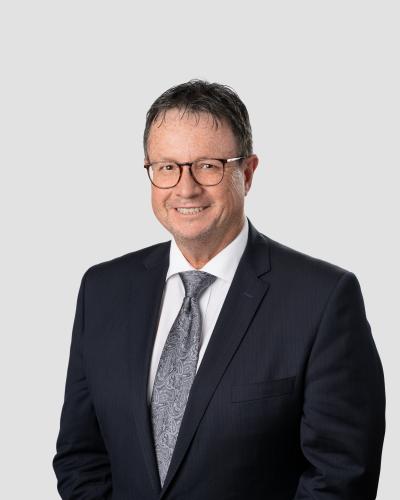Prof Steve Robson on COVID-19 Inquiry
Transcript: Professor Stephen Robson, on ABC Melbourne radio Thursday, 21 September 2023 Subject: Covid-19 inquiry

HOST: Well, COVID, it's still around. A lot of people at my day job are missing because they have COVID. A lot of people using tests that are out of date but they're still testing positive. So, it's still with us, but we're going to have an inquiry, not a royal commission, I think the Prime Minister is most adamant that he doesn't want to use those words - but an investigation of some sort into what happened in COVID and hopefully what did we get wrong, and even more hopefully how do we get it right next time.
The AMA, the Australian Medical Association, has been calling for this for quite a long time. And joining us now is Professor Steve Robson. He's the President. Hi, Steve.
STEVE ROBSON: Good morning, Matt.
MATT TILLEY: So we know there was an announcement yesterday that there's going to be an announcement, but we're pretty certain this inquiry is coming. What shape is it taking? What's your understanding?
STEVE ROBSON: My understanding is it will be an expert panel. It will be running the inquiry. They'll be taking the usual process of taking submissions, hearing from the public, and hopefully calling people to speak about experiences and so on. But I think it will be something that runs over a considerable period of time and will be taking evidence around the country, Matt.
MATT TILLEY: Yeah, I listened to something the other day that the New York Times had put together around COVID, saying: how quickly we forget that a million people died from COVID, and if that was a war or anything else, there'd be national monuments, there'd be days of remembering, there'd be ongoing mourning. But really, it's just seen as a political stoush where everyone points the finger about mishandling. And it's the same here in many respects. People are still very passionate about lockdowns, but 23,000 people have died from COVID since it first came to our shores. That's higher than the road toll or anything else. Why do we keep missing that point?
STEVE ROBSON: It's a very, very good question, Matt, and I've thought about that a lot myself. I think in terms of the inquiry, 23,000 Australians' lives have been taken and it's an incredible opportunity to learn all the lessons that we need to learn to prepare ourselves, to make ourselves a resilient community for these sorts of threats as we move forward. And this could well be a great opportunity to really build some resilience into our systems, to make sure that our healthcare system is up to the job, and I think a really important opportunity to engage Australians in health science and healthcare.
MATT TILLEY: Yeah, because we need to be engaged because one of the great ways of managing this wasn't inoculations and medicine, it was our behaviour and being locked down and how we handled ourselves in terms of hygiene. And yet, I think unequivocally most people would say: I'm not doing lockdown again. No way. Couldn't go through that again. But there could be another COVID, right? There could be another virus that floors us like this.
STEVE ROBSON: I think it's very, very likely that something like that will happen in the future. We know that there are a number of viruses, other coronaviruses and so on that are on the periphery of our communities. And it would not take much, particularly with climate change changing the ecology, these things are likely to happen again, and it's really critical that we're prepared and we have systems in place. And I think also that as a community we understand what we have to do next time.
MATT TILLEY: I also think that we've developed a bit of an amnesia about it. And in fact, it was only the other day at my work when we lost two people to COVID, they weren't coming in. People were going: oh my god, do you remember if you'd just been to a supermarket where someone else had been who had COVID, you had to isolate for two weeks? And people were like: did we? Is that right? I don't remember it being that. Will that affect an investigation, that fact that we always want to move on so quickly?
STEVE ROBSON: I think it's a really great reason why we need to have an inquiry like this, because there is a lot of retrospective scoping going on. There's a lot of people- and the community forgets, there are other things on people's minds. And of course, it was so traumatic for so many people. We have a tendency to try to put it out of our minds. Let's take this opportunity to learn everything we can about moving forward, about as a community, as a society, government, our systems, business, what we need to do to prepare and be ready so we're not caught flat-footed next time.
MATT TILLEY: Right. And in terms of that, given that it is still around, should we still be getting vaccinated and things like that? Because I've got like, I think I've done all that. I think I've deleted the app, even. But given that it's still around, should we still be responding and preparing?
STEVE ROBSON: I think the really important thing to remember now is the people- and we- every part of Australia, people are losing their lives every week from COVID infection. That vaccination, being immunised, protects you, but it also protects vulnerable members of our community. And I think one of the huge lessons from the pandemic has been how vulnerable some people are and how we need to make sure that we can protect the vulnerable in our community. And vaccination is very much about protecting vulnerable other people as well.
(ends)


